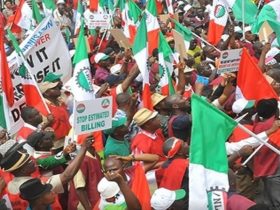Making an Impact from Day One
When the President of Nigeria handpicks ministers, a common refrain echoes through the political landscape: “hit the ground running.” This simple phrase holds within it the power to either send shivers down the spines of people and groups or elicit genuine enthusiasm. It’s a concept that sparks conversations and debates, leaving an indelible mark on the nation’s governance.
Just last week, Nyesome Wike took his turn at this high-stakes game. As we eagerly anticipate others to follow suit, it’s clear that many minds are tirelessly at work, strategizing on how to make their mark swiftly and decisively. In my view, those who embrace this challenge head-on and “hit the ground running” display a profound seriousness about their roles.
This very morning, I found myself engrossed in the activities of the recently appointed Minister of Transport. His visit to a significant train station unraveled a multitude of issues plaguing the facility: non-functional restrooms, water scarcity, and more. With a commanding authority, he promptly summoned the Managing Director of the Nigeria Railway Corporation to account for these shortcomings. While I applaud his dynamic approach to making an impact, a wry smile creeps in as I contemplate the Managing Director’s likely response.
Undoubtedly, the Managing Director will meet this summons with a mix of apprehension and hope. After all, the encounter could potentially reshape his budget landscape. The complexities of the federal government’s operations are not to be taken lightly. The Managing Director might share something like this:
“Sir, our mandate revolves around revenue generation and addressing our operational needs. Regrettably, our annual revenue stands at a modest 3 million naira. This meager sum is stretched thin, covering essentials such as repairs and payroll. Currently, our repair contractor is owed a staggering 100 million naira, hampering our efficiency. Some of our dedicated staff members remain unpaid, casting a shadow on their morale. Additionally, rampant vandalism of rail tracks demands continuous repairs, further draining our resources. We are in dire need of enhanced security measures to safeguard these vital tracks.”
As the conversation unfolds, the Minister’s response is a familiar refrain: “Don’t worry, I will look into it.” Unfortunately, all too often, this promise marks the beginning and the end of the effort. This pattern contributes to the perception that our ministers’ efficacy is undermined by inaction. The underlying issue looms large – numerous ministries grapple with massive backlogs of debt, an inheritance from their predecessors. It’s a conundrum that leaves one pondering how a current minister can bear the burden of past misdeeds.
In essence, the concept of “hitting the ground running” in ministerial appointments encompasses a dual challenge. On one hand, it demands that newly appointed ministers swiftly address critical issues and make impactful changes. On the other hand, it underscores the intricate web of systemic challenges that have persisted over time. As we watch the drama of these initial encounters unfold, the nation holds its breath, hoping that this time, actions will indeed speak louder than words. The transformative power of those who genuinely hit the ground running can potentially reshape the course of governance and set the stage for a brighter future.













Leave a Reply